When Van Gogh painted ‘The Starry Night’ as a swirling mass of cosmic energy, he may have been painting what he saw with neurotic eyes, but he was also painting what he saw with transcendent eyes. The first gave his painting mere form, the second gave it formless, universal emotion that connects directly to the viewer.
Amit Goswami
This essay is about discernment, about formless, universal emotion.
Our modern world stands at an unprecedented crossroads, teetering between order and chaos. Now, perhaps more than ever, the spiritual practice of discernment becomes not just a personal necessity but also a collective imperative. St. Ignatius of Loyola, the 16th-century Spanish mystic and founder of the Society of Jesus (Jesuits), offers invaluable insight into this quest for discernment in his "Spiritual Exercises." In fact, his has remained the seminal work on discernment for some 500 years.
Over the years I have attended many Jesuit retreats centered on Ignatian discernment practices. However, in this essay my aim is not to approach discernment from a religious springboard, Christian or otherwise, but rather from spiritual rationalism. Discernment is about detecting truth. Therefore, we can all benefit from unclouded, objective information stripped of religious triggers and ossified dogma. That said, I will attempt to secularize Ignatian spirituality regarding discernment of spirits for a broad, contemporary audience.
Ignatian Rules for Discernment
At the heart of Ignatian spirituality lies his Rules for the Discernment of Spirits, a set of practical rather than meditative guidelines designed to help us understand and interpret different influences that act upon our consciousness. These rules aim to guide us in discerning between the ordered harmony and emotions instilled in our minds by the Universe and the chaotic dissimulations spread by evildoers seeking to sow confusion, despair and discord for their nefarious purposes.
Ignatius teaches us to be ever-watchful of our interior dispositions. If we have been attentive to our spiritual lives, he tells us to expect the Universe to manifest itself as peace, clarity, and consolation. On the other hand, if we have been inattentive, we can expect doubt, distractions and desolation to accompany the presence of negative influences and pernicious deceptions. We cannot deny it: many people choose to live contemptuous, angry and deluded lives. Many are psychological zombies.1 Many others are godless - they are their own god.
Self-Awareness: The First Step to Discernment
Before beginning the process to discern truth, one must possess self-awareness, an attribute primarily achieved through introspection, meditation, and mindfulness. If a soul, which is identical to personal consciousness, is facing a difficult decision or experiencing trouble separating truth from fiction - as so often is the case in today’s turbulent world - proper discernment will only take place amidst an atmosphere of willful submission to what some call a higher power and Rational Spirituality calls universal omniscient consciousness.
Introspection involves a rigorous examination of one’s own thoughts, feelings, and motives. Moreover, it disarms the ego.
Meditation is a technique used to train the mind to focus and attain heightened states of awareness.
Mindfulness is the practice of deliberately paying attention to the present moment without judgment.
Discernment in Various Faith Traditions
While Ignatian spirituality is rooted in Catholicism, the concept of discernment is universal and can be found in various religious traditions. In Buddhism, it aligns with the practice of "Vipassana" or insightful meditation. In Hinduism, the concept resembles "Viveka," the power of discernment between the real and the unreal, the eternal and the transient. Islam also places a high value on discernment or "firāsah," regarded as a light which God deposits in the heart of the faithful.
In Rational Spirituality, we regard discernment as a process aided by quantum entanglement. Our hearts and minds are quantumly entangled with the Universe via the Vacuum Energy or Zero Point Energy Field. In other words, everything in the universe is interconnected. Some proponents argue that tapping into Zero Point Energy in the future could potentially allow for radical advancements in human cognition, well-being and psychic or extrasensory capabilities.
The Zero Point Field is the lowest possible energy state a quantum system may have. It is, however, always fluctuating with matter fields and force fields. You may have heard it called the quantum foam or The Akashic Field.2 Regardless of how it is referred to, this energy/information force field is always accessible to us via consciousness. While this may ring of New Age woo-woo to some, it is, in fact, mainstream science.
The new paradigm posits a monism based on the primacy of consciousness. And that consciousness (variously called Spirit, God, Godhead, Ain Sof, Tao, Brahman, etc., in popular traditions) is not matter but the Ground of All Being. It is a monism based on a consciousness that is unitive and transcendent, but “one that becomes many” in sentient beings such as us. We are that consciousness. All the world of experience, including matter, is the material manifestation of transcendent forms of consciousness.
Amit Goswami
Some people - many people - are trapped in a delusion that we are alone. That no one is “up there.” It’s easy to appreciate these doubts. Old ideas of the Godhead no longer resonate with the newer generations for a plethora of reasons we won’t delve into; they are unimportant given the dilemma we now face. This delusion of being alone, actually it’s more of a deception, is called physicalism. It used to go by the name materialism. We regard both as abominations.
Materialism predates our current understanding of physics, including quantum mechanics and relativity. It generally posits that only matter and the interactions thereof are real. In this older framework, anything that exists is material and all phenomena can be explained by material interactions. No quarter for spirituality is afforded.
Physicalism is a more modern refinement of this view and aims to be consistent with modern physics. While materialism was concerned primarily with matter, physicalism extends the notion to include energy, forces and space and time, among other things. Physicalism encompasses not just matter but also physical laws, relations, properties and entities that are admitted by a complete and ideal physical theory. It views consciousness only as an emergent property of the brain, while we view consciousness as an attribute of the Godhead and Ground of All Being. Physicalism nudges a little closer to spirituality, but spurns it.
Many of the institutional deceptions, media-mouthed deep fakes and outright callous distortions result from this dearth of spiritual awareness, atheism and academic indolence. These are the sires of a pervasive false narrative that denies unseen reality beyond physical theory.
Rational Spirituality attributes this troubling narrative to a perhaps unexpected source: the Antichrist.3 While rooted in Biblical terminology, and thus resonating with a religious audience, the concept of the 'End Times and an Antichrist’ can also be explicated as a psychosemiotic representation of humanity’s Collective Unconscious Shadow archetype.4
Our consciousness interacts with other dimensions. Our physical sensors only show us a three-dimensional universe. What exists in the higher dimensions are entities we cannot touch with our physical sensors.
Bernard Carr, Professor of Astronomy, Queen Mary University, London
In Rational Spirituality's Theory of Mind, the Shadow archetype, as originally conceptualized by Carl Jung, holds a significant and influential position. The Shadow, representing the repressed and unacknowledged aspects of the self, exists within every human psyche and exerts a constant, albeit often unconscious, influence on our thoughts and actions.
While a natural part of the psyche, the Shadow can become particularly potent and potentially destructive when amplified by factors such as psychopathy, severe mental illness, or ideologies that embrace malice and harm, which we can broadly term 'psychological evil'. Under these conditions, the Shadow's influence is heightened, and its darker tendencies, such as aggression, selfishness, and destructiveness, can come to the forefront.
This intensified state weakens the individual's capacity to distinguish between constructive and destructive impulses, making them more susceptible to acting out harmful behaviors.
The ruler (archon) of the power of the air, the spirit who is now at work in the sons of disobedience.
Ephesians 2:2
Why Discernment is Paramount Today
As humanity lingers on the brink of significant societal, environmental and even spiritual shifts, discernment takes on a critical role. To navigate through the labyrinth of choices and influences that bombard us daily, an internal compass fortified by spiritual discernment is indispensable. In a time when it is increasingly difficult to differentiate between what is true and what is misleading, Ignatius' Rules for Discernment of Spirits offer timeless wisdom.
And as the world hovers on the shores between order and chaos, Ignatian discernment provides a toolkit for individuals and communities to navigate life's complexities. By practicing heightened self-awareness through introspection, meditation and mindfulness, and by taking a leaf out of various religious books, we can hope to maintain the scale in favor of order, harmony and survival.
The stakes are that high!
The most helpful of Ignatius’ rules, in my experience, involve the interaction of consolation and perturbation within our overall emotional disposition. When we contemplate, say, a particular proposition such as “the vaccine is safe and effective,” and experience peace and consolation, we relax and move on. Our internal truth detector flashes green.
But when considering the question, if instead we experience perturbation, that persistent nagging unsettled feeling of cognitive dissonance. Or we find ourselves encountering the same dubious proposition over and over again, while still attempting to discern its truthfulness, then we must reject it and do more research. “Something clearly is not right,” we tell ourselves. Our internal truth detector flashes bright red.
“Question everything,” as Einstein cautioned. Science is never settled. If it’s settled, it isn’t science, it’s dogma. Early on, that oft-repeated lie was a giveaway; the truth easily could be discerned.
We can count upon Ignatian Rules for Discernment for this more than anything else: to give us an effective methodology that undergirds critical thinking and ferrets out untruths. It will never fail an open mind, a seeker of truth.
"Take, Lord, receive all my liberty, my memory, my understanding, my whole will, all that I have and all that I possess. You gave it all to me, Lord; I give it all back to you. Do with it as you will, according to your good pleasure. Give me your love and your grace; for with this I have all that I need." ~ Prayer of St. Ignatius
Psychological Zombies (article)

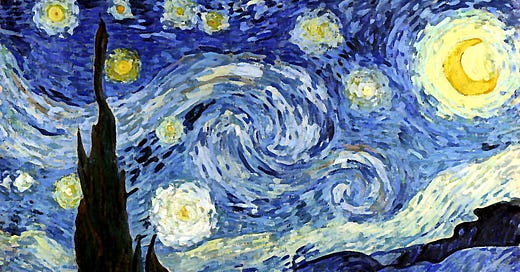



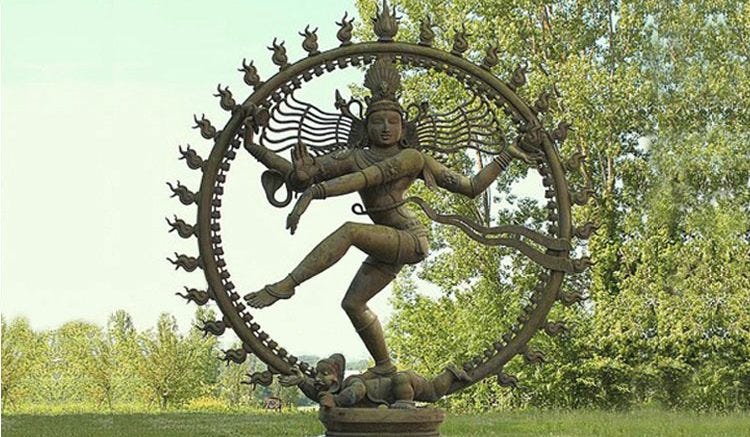
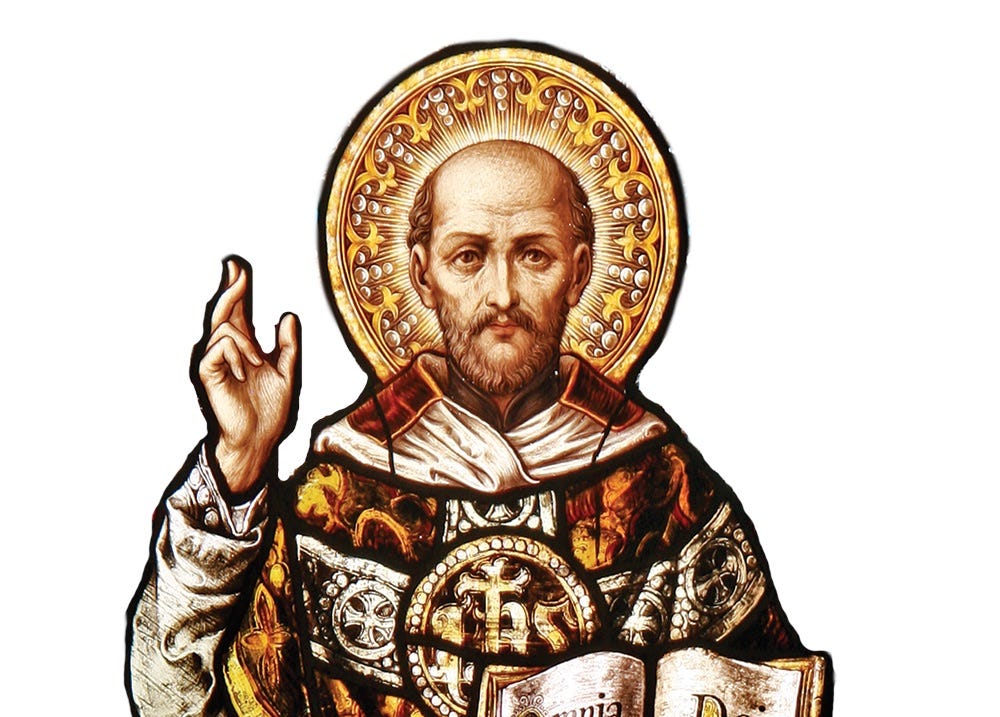

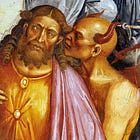
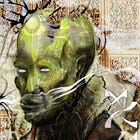
Thank you for this insightful article. Does St. Ignatius's guide for Spirituality and Discernment offer other points to help find clarity in life’s quandaries?
One of the greater pieces on which I dare not comment. Thank you